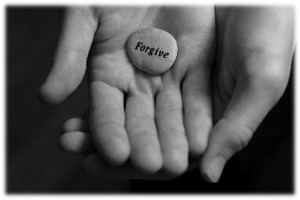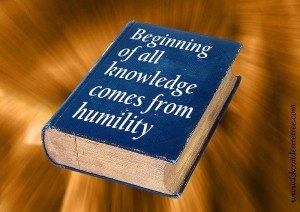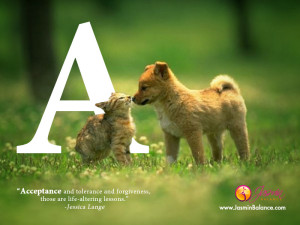
Roj Hormuz Mah Fravardin, 1384 Yz.
A very happy, prosperous and spiritually resplendent 1384 to all readers of Frashogard!
As we step into 1384 Yezdezardi, it’s an apt time to once again take stock of our lives, draw up the spiritual balance sheet and plan for the year ahead. What kind of guidance can we draw from our religion and its teachings? How should we spend the coming year as true Zoroastrians?
Zoroastrianism always talks of the fight between good and evil. This is not a mere philosophical idea but is manifest reality happening in every second of our lives. Many of us however may not be aware of this constant struggle within and outside us. So this year, I decided to give my readers some pointers by showing 12 pairs of activities – one which we could greatly increase in our lives for our own benefit, and the other which we could avoid, or reduce as far as possible. By juxtaposing these seemingly similar, but in reality widely varying activities, we can become more aware of the presence of good and evil in our lives and learn to make the right choice – the Zoroastrian choice – adopting the path of good, which will ultimately lead us to salvation.
The idea is to devote each of the twelve months of the coming year to each one of these pairs, thereby emerging as a better Zoroastrian and a better human being at the end of the year.
- Pray more, talk less:
 There is so much chatter in our lives – the mobile, the internet, email, groups, Facebook, Twitter… In this endless chatter, we forget to talk to the one person who should matter the most to us – God. The way to talk to God is through prayer. It is not necessary to know or understand what you are praying (although it does help a lot), but it is necessary to pray, and to pray in Avesta. Just as we eat nutritious food for the health of our body, Avesta Manthras are nutrition for the soul, our Ruvan which lies within us, in a deep slumber. The practice of regular prayer, at pre-set times during the day, inculcates a habit within us of leaving aside everything else and concentrating solely on God. This one practice can work wonders in our life. God is always there for us, in times of need and in times when we prefer not to talk to Him. Prayer is not something to do after retirement, it is like an investment which builds and compounds with time – the earlier you start, the better. Pray more, talk less.
There is so much chatter in our lives – the mobile, the internet, email, groups, Facebook, Twitter… In this endless chatter, we forget to talk to the one person who should matter the most to us – God. The way to talk to God is through prayer. It is not necessary to know or understand what you are praying (although it does help a lot), but it is necessary to pray, and to pray in Avesta. Just as we eat nutritious food for the health of our body, Avesta Manthras are nutrition for the soul, our Ruvan which lies within us, in a deep slumber. The practice of regular prayer, at pre-set times during the day, inculcates a habit within us of leaving aside everything else and concentrating solely on God. This one practice can work wonders in our life. God is always there for us, in times of need and in times when we prefer not to talk to Him. Prayer is not something to do after retirement, it is like an investment which builds and compounds with time – the earlier you start, the better. Pray more, talk less.
- Listen more, talk less
 We live in a hyper-competitive world. In corporates and organizations, the one who speaks more gets ahead more or so it seems. We even have a Gujarati saying: ‘bole tena bor vechay…’ But there are two types of talking. One is a genuine talk, arising out of camaraderie and companionship, one which helps a fellow human being. The other is a fake talk, when the objective is to drown out all other voices except our own. At such times we don’t talk with, but rather talk to a person. This is rapid talk, giving directions, orders, commandments to those supposedly inferior to us. But the real beauty of a conversation is when one listens to what the other is saying. Sometimes it is necessary to just be quiet for a few minutes and let the other person get the load off his chest. Listening is a good thing. Listening without being judgemental, without cross-examination is an art. He who truly listens, learns more. The more one learns, the more others will want to listen to you. Listen more, talk less.
We live in a hyper-competitive world. In corporates and organizations, the one who speaks more gets ahead more or so it seems. We even have a Gujarati saying: ‘bole tena bor vechay…’ But there are two types of talking. One is a genuine talk, arising out of camaraderie and companionship, one which helps a fellow human being. The other is a fake talk, when the objective is to drown out all other voices except our own. At such times we don’t talk with, but rather talk to a person. This is rapid talk, giving directions, orders, commandments to those supposedly inferior to us. But the real beauty of a conversation is when one listens to what the other is saying. Sometimes it is necessary to just be quiet for a few minutes and let the other person get the load off his chest. Listening is a good thing. Listening without being judgemental, without cross-examination is an art. He who truly listens, learns more. The more one learns, the more others will want to listen to you. Listen more, talk less.
- Demonstrate more, instruct less
 Another key behaviour to watch out for is the propensity to instruct others, rather than demonstrate. That is, we have one set of rules for ourselves and another set for others. We believe that those around us should behave in a particular way, which we like, without actually caring for the impression we may be making with our own behaviour. This is most evident in families and with children, who totally soak up the behaviour of their parents and try to emulate them. If we want our children to grow up in a particular way, then we too must walk the talk. We can’t expect the child to go to the Agiary when we ourselves don’t do so. We can’t expect the child to pray every day when we deem ourselves too busy for that. We must try to make ourselves shining beacons of exemplary living, which can motivate and inspire those around us to emulate our deeds. Demonstrate more, instruct less.
Another key behaviour to watch out for is the propensity to instruct others, rather than demonstrate. That is, we have one set of rules for ourselves and another set for others. We believe that those around us should behave in a particular way, which we like, without actually caring for the impression we may be making with our own behaviour. This is most evident in families and with children, who totally soak up the behaviour of their parents and try to emulate them. If we want our children to grow up in a particular way, then we too must walk the talk. We can’t expect the child to go to the Agiary when we ourselves don’t do so. We can’t expect the child to pray every day when we deem ourselves too busy for that. We must try to make ourselves shining beacons of exemplary living, which can motivate and inspire those around us to emulate our deeds. Demonstrate more, instruct less.
- Give more, take less
 Today’s culture is one where everyone wants to take not only what is rightfully his, but even that which may belong to someone else. Observe people at buffet tables, overloading their plates even though they know they would not be able to finish everything. But give and take is not merely about food. The Zoroastrian religion explains that fragments of our Ruvan exist in the animal, vegetable and mineral kingdoms, as well as in the opposite sex. When one leads a Zoroastrian life, rich in truth and Tarikats, our Ruvan vibrates at a specific frequency. This frequency matches that of the fragments trapped in the other kingdoms. When the person lives an exemplary Zoroastrian life, his Ruvan’s frequency amplifies, and its call is heard by the other fragments, which rush towards the person and are assimilated into his body through a very mystic process. But when one lives an un-Zoroastrian life, a life based on lies, deceit or without following the basic commandments of the religion, the Ruvan fragments of his own self go further and further away from him. Worse, fragments that do not belong to him, but to another Ruvan get assimilated into his body, not only making a misfit, but also delaying the progress of the other soul. The true Zoroastrian give and take is to give away all that is not ours, and to take only that which belongs to us. How can we make this choice? This choice comes through the enlightened mind – sucha managha – which is not obtained by Ph.D.’s and attending World Zoroastrian Congresses, but by living the true Zoroastrian life of truth, righteousness and humility. Give more, take less.
Today’s culture is one where everyone wants to take not only what is rightfully his, but even that which may belong to someone else. Observe people at buffet tables, overloading their plates even though they know they would not be able to finish everything. But give and take is not merely about food. The Zoroastrian religion explains that fragments of our Ruvan exist in the animal, vegetable and mineral kingdoms, as well as in the opposite sex. When one leads a Zoroastrian life, rich in truth and Tarikats, our Ruvan vibrates at a specific frequency. This frequency matches that of the fragments trapped in the other kingdoms. When the person lives an exemplary Zoroastrian life, his Ruvan’s frequency amplifies, and its call is heard by the other fragments, which rush towards the person and are assimilated into his body through a very mystic process. But when one lives an un-Zoroastrian life, a life based on lies, deceit or without following the basic commandments of the religion, the Ruvan fragments of his own self go further and further away from him. Worse, fragments that do not belong to him, but to another Ruvan get assimilated into his body, not only making a misfit, but also delaying the progress of the other soul. The true Zoroastrian give and take is to give away all that is not ours, and to take only that which belongs to us. How can we make this choice? This choice comes through the enlightened mind – sucha managha – which is not obtained by Ph.D.’s and attending World Zoroastrian Congresses, but by living the true Zoroastrian life of truth, righteousness and humility. Give more, take less.
- Empathize more, inquire less
 We all have our own difficulties. Our suffering seems to be the worst of all. In times of crisis, we expect those around us to be our help, to listen to us, to feel our pain. Empathy is a beautiful emotion. To empathize means to feel the pain of another. But very often, empathy is replaced by curiosity. People want to know each and every detail of your suffering. Recently we had a severe health crisis in our family. At that time we encountered two types of people. There were those who came up to us, patted our shoulder, offered their help and quietly empathized in our moment of turmoil. And there were those who came out of curiosity, a sense of morbid inquisitiveness – ‘what happened, oh dear, which doctor, which hospital, how much will it cost, is it serious…’ and such questions which not only drain the exhausted even further, but give rise to anger and frustration. It is not necessary to know each and every detail of a crisis to be able to offer your support. Some persons, specially family members, feel it is their innate right to know all the details. At such times, it is necessary to control the natural human tendency of curiosity and gossip, and concentrate on giving quiet support and comradeship. Empathize more, inquire less.
We all have our own difficulties. Our suffering seems to be the worst of all. In times of crisis, we expect those around us to be our help, to listen to us, to feel our pain. Empathy is a beautiful emotion. To empathize means to feel the pain of another. But very often, empathy is replaced by curiosity. People want to know each and every detail of your suffering. Recently we had a severe health crisis in our family. At that time we encountered two types of people. There were those who came up to us, patted our shoulder, offered their help and quietly empathized in our moment of turmoil. And there were those who came out of curiosity, a sense of morbid inquisitiveness – ‘what happened, oh dear, which doctor, which hospital, how much will it cost, is it serious…’ and such questions which not only drain the exhausted even further, but give rise to anger and frustration. It is not necessary to know each and every detail of a crisis to be able to offer your support. Some persons, specially family members, feel it is their innate right to know all the details. At such times, it is necessary to control the natural human tendency of curiosity and gossip, and concentrate on giving quiet support and comradeship. Empathize more, inquire less.
- Forgive more, condemn less
 In this journey of our life, we meet many people whose actions leave a distinct impression in our lives. Some enrich us, some cause us pain and suffering. It is human nature to forget the kindness offered by a person but remember in great detail the slightest agony caused. These memories of hurt create a bitterness in our heart, a cooling of our emotions and over time, build up into intense hatred for another. The mind works overtime, we begin to imagine things which are not there. As we get more and more distant from such persons, our hatred grows even more. This hatred, which remains bottled up inside, causes grave physical ailments in our body, thereby hurting us further. But forgiveness is an incredible feeling. When we forgive someone for whatever they have done (or not done), we feel an instant lightness in our heart, the lifting of a heavy burden, and every atom of our body seems to erupt in joyous ecstasy. Letting go of a long seated hatred is the only way to move forward. We have to remember the principle of Meher Yazad: no permanent friend, no permanent enemy. Forgive more, condemn less.
In this journey of our life, we meet many people whose actions leave a distinct impression in our lives. Some enrich us, some cause us pain and suffering. It is human nature to forget the kindness offered by a person but remember in great detail the slightest agony caused. These memories of hurt create a bitterness in our heart, a cooling of our emotions and over time, build up into intense hatred for another. The mind works overtime, we begin to imagine things which are not there. As we get more and more distant from such persons, our hatred grows even more. This hatred, which remains bottled up inside, causes grave physical ailments in our body, thereby hurting us further. But forgiveness is an incredible feeling. When we forgive someone for whatever they have done (or not done), we feel an instant lightness in our heart, the lifting of a heavy burden, and every atom of our body seems to erupt in joyous ecstasy. Letting go of a long seated hatred is the only way to move forward. We have to remember the principle of Meher Yazad: no permanent friend, no permanent enemy. Forgive more, condemn less.
- Personal more, social less
 The social media revolution has suddenly brought us all together, closer. Now we can chat to our hearts’ content and the distances of thousands of miles are bridged in a moment. But in all these social media activities, the question to ask is this: have we actually become closer to each other, or have we actually drifted apart more? In an age of instant messaging and What’s app, have we forgotten the pleasure of writing out a new year card by hand? Have we forgotten those old postcards which used to come from our grannies living in the villages, written in quaint Gujarati, beginning with those memorable words: ‘sada sukhi raho, sadana vhala…’ What brought us more happiness? Those charming cards, written in red ink with not a millimetre of space wasted, or the endless barrage of senseless SMSs, forwarded ad nauseum. We have forgotten the joy which comes on receiving a book as a gift, of unwrapping a present, however small. Can a cheque deposited in a bank bring us the same pleasure? In the age of Facebook, it is tragic that we don’t see each other’s faces anymore. It’s all on the screen, on the phone, on the surface, never something heartfelt and deep inside. Personal more, social less. Faces and books more, Facebook less.
The social media revolution has suddenly brought us all together, closer. Now we can chat to our hearts’ content and the distances of thousands of miles are bridged in a moment. But in all these social media activities, the question to ask is this: have we actually become closer to each other, or have we actually drifted apart more? In an age of instant messaging and What’s app, have we forgotten the pleasure of writing out a new year card by hand? Have we forgotten those old postcards which used to come from our grannies living in the villages, written in quaint Gujarati, beginning with those memorable words: ‘sada sukhi raho, sadana vhala…’ What brought us more happiness? Those charming cards, written in red ink with not a millimetre of space wasted, or the endless barrage of senseless SMSs, forwarded ad nauseum. We have forgotten the joy which comes on receiving a book as a gift, of unwrapping a present, however small. Can a cheque deposited in a bank bring us the same pleasure? In the age of Facebook, it is tragic that we don’t see each other’s faces anymore. It’s all on the screen, on the phone, on the surface, never something heartfelt and deep inside. Personal more, social less. Faces and books more, Facebook less.
- Humility more, pride less
 One often hears Parsis say: ‘I am very proud of my religion.’ That’s an oxymoron, because pride, is actually a sin! It also seems surprising that Parsis are so proud of our religion, but seem very diffident when it comes to practicing the same! In the same manner it is observed that those who spend many hours praying in the Agiaries and Atash Behrams develop some sort of a superiority complex and look down upon other ‘normal’ persons. This is an instant recognition of prayer gone wrong. Our Master, Ustad Saheb Behramshah N. Shroff always remarked that a true Parsi is one who is willing to give up all that he has earned through the knowledge of his religion in favour of one who may not even be wearing a Sudreh Kusti. The true Parsi is an embodiment of Bahman Ameshaspand – signified by the cow – who gives away her most precious milk to others. Giving away that which is ours creates a feeling of humility and detachment in us. It never creates a feeling of nothingness or emptiness, because that which we give away is more than recompensed by Ahura Mazda. The more we give away, the more we receive from Him. Humility more, pride less.
One often hears Parsis say: ‘I am very proud of my religion.’ That’s an oxymoron, because pride, is actually a sin! It also seems surprising that Parsis are so proud of our religion, but seem very diffident when it comes to practicing the same! In the same manner it is observed that those who spend many hours praying in the Agiaries and Atash Behrams develop some sort of a superiority complex and look down upon other ‘normal’ persons. This is an instant recognition of prayer gone wrong. Our Master, Ustad Saheb Behramshah N. Shroff always remarked that a true Parsi is one who is willing to give up all that he has earned through the knowledge of his religion in favour of one who may not even be wearing a Sudreh Kusti. The true Parsi is an embodiment of Bahman Ameshaspand – signified by the cow – who gives away her most precious milk to others. Giving away that which is ours creates a feeling of humility and detachment in us. It never creates a feeling of nothingness or emptiness, because that which we give away is more than recompensed by Ahura Mazda. The more we give away, the more we receive from Him. Humility more, pride less.
- Positive more, negative less
 There is no human on this earth who does not feel he lacks something. There is none among us who feels he is truly content. But for many, the absence of possessions in their lives gives rise to despondency and negativity. Constantly comparing themselves to those way above them on the social ladder leads to bitterness and jealousy. The more we wallow in such negativity and self-pity, the more pitiable our condition becomes. Of the many hundreds of Parsi homes I have visited to perform Jashans, there are those places where you feel suffocated the moment you enter. A deep pall of gloom pervades everywhere. Even the family members seem to have forgotten how to smile. And there are some tiny homes which are kept so well, every wall and window pane exudes cheerfulness. It is a joy to pray in such homes. Every Parsi has to choice to be happy and content, or keep sinking into the abyss of pessimism. Speaking ill of others is also a form of pessimism. We can all do with more, but we can also all be content with what we have. Remember the golden words of Dastur Adurbad Mahrespand: ‘this too shall pass.’ Positive more, negative less.
There is no human on this earth who does not feel he lacks something. There is none among us who feels he is truly content. But for many, the absence of possessions in their lives gives rise to despondency and negativity. Constantly comparing themselves to those way above them on the social ladder leads to bitterness and jealousy. The more we wallow in such negativity and self-pity, the more pitiable our condition becomes. Of the many hundreds of Parsi homes I have visited to perform Jashans, there are those places where you feel suffocated the moment you enter. A deep pall of gloom pervades everywhere. Even the family members seem to have forgotten how to smile. And there are some tiny homes which are kept so well, every wall and window pane exudes cheerfulness. It is a joy to pray in such homes. Every Parsi has to choice to be happy and content, or keep sinking into the abyss of pessimism. Speaking ill of others is also a form of pessimism. We can all do with more, but we can also all be content with what we have. Remember the golden words of Dastur Adurbad Mahrespand: ‘this too shall pass.’ Positive more, negative less.
10. Accept more, convert less
 Recently, Pope Francis gave out ten tips for happiness. Among them, the ninth point was: ‘don’t proselytize, respect others’ beliefs.’ Similarly we Parsis are always fighting about religion. Some want the Dakhma, some don’t. Some want to accept mixed marriages, some don’t. All these are very touchy issues. But do we need to become personal and rude when discussing such things? How many internet chat groups and Facebook groups spew venom at each other, using the most un-Zoroastrian language. In the absence of a community-wide leader who people can look up to for guidance and direction, there will always be fights and divisions. But the community can help itself a great deal by learning to accept the right of another to hold a different view. We may not agree with the view, but we cannot stop someone from having an opinion and voicing it. Many things can be worked out, when people sit with quiet heads, use temperate language and defer to the wishes of those around them. Accept more, convert less.
Recently, Pope Francis gave out ten tips for happiness. Among them, the ninth point was: ‘don’t proselytize, respect others’ beliefs.’ Similarly we Parsis are always fighting about religion. Some want the Dakhma, some don’t. Some want to accept mixed marriages, some don’t. All these are very touchy issues. But do we need to become personal and rude when discussing such things? How many internet chat groups and Facebook groups spew venom at each other, using the most un-Zoroastrian language. In the absence of a community-wide leader who people can look up to for guidance and direction, there will always be fights and divisions. But the community can help itself a great deal by learning to accept the right of another to hold a different view. We may not agree with the view, but we cannot stop someone from having an opinion and voicing it. Many things can be worked out, when people sit with quiet heads, use temperate language and defer to the wishes of those around them. Accept more, convert less.
11. Present more, past and future less
 As a community, we excel in glowing in our past days of glory. Oh we did this, we did that… endless mails are sent to each other, the first Parsi to do this, the first Parsi to do that…Then there are some who look forward to the future – the Promised Saviour will come, Shah Behram Varzavand is coming…The question is: what are we doing in the present? Are we, as a community doing anything to deserve our continued existence? What are we doing to warrant the advent of Shah Varzavand? See what a spectacle our so-called leaders make of themselves in the national and community press. For the community to get out of this mess, we need to stop living in the past, or hoping for the future, and start living firmly in the present. Living a Zoroastrian life, based on truth, righteousness, practice of Tarikats and supreme devotion to Ahura Mazda and His Prophet Zarathushtra is the only method to ensure the community’s survival. Every Parsi has to work hard to prove himself worthy of being called a Parsi. Present more, past and future less.
As a community, we excel in glowing in our past days of glory. Oh we did this, we did that… endless mails are sent to each other, the first Parsi to do this, the first Parsi to do that…Then there are some who look forward to the future – the Promised Saviour will come, Shah Behram Varzavand is coming…The question is: what are we doing in the present? Are we, as a community doing anything to deserve our continued existence? What are we doing to warrant the advent of Shah Varzavand? See what a spectacle our so-called leaders make of themselves in the national and community press. For the community to get out of this mess, we need to stop living in the past, or hoping for the future, and start living firmly in the present. Living a Zoroastrian life, based on truth, righteousness, practice of Tarikats and supreme devotion to Ahura Mazda and His Prophet Zarathushtra is the only method to ensure the community’s survival. Every Parsi has to work hard to prove himself worthy of being called a Parsi. Present more, past and future less.
12. Live more, exist less
 A popular song has these memorable line: ‘Everyone dies, not everyone lives.’ That is a superb one sentence summary of life. Many of us go through the motions of life, but are we actually living the true life? I see so many youth wasting away their lives on the steps of our Parsi colonies. I see so many Parsi ladies, wasting their talents, whiling away their time watching those hopeless TV serials or talking endlessly on the society intercom. I see so many Parsi men, going to work early in the morning and returning late at night, serving some cruel boss or a large organization, rather than put in the same effort and start something of their own. And of course I see so many Priests and Panthakis, piling on loads of sin, trying to fool innocent Behdins by cutting short the rituals and ceremonies they are getting paid for. All this is to what end? The things we see around us – our money, our possessions, our family, all are transient. We will soon leave all this and go to a place where there is only truth, where no one call fool another. What can we take with us – nothing but the good we have done in this world. Even the white sheet which will cover us will remain here. Then why the attachment to this world of illusion? This life, and this body gifted to us by Ahura Mazda is to be used solely for one purpose – to attain salvation, to unite with God. Only goodness and truth will lead us to Him. We must learn to live life, not just exist. The purpose of our life must be clear, and it must be reiterated every day, when we wake up and do the first Kusti. ‘Today, O Lord, I will come one step closer to You!’
A popular song has these memorable line: ‘Everyone dies, not everyone lives.’ That is a superb one sentence summary of life. Many of us go through the motions of life, but are we actually living the true life? I see so many youth wasting away their lives on the steps of our Parsi colonies. I see so many Parsi ladies, wasting their talents, whiling away their time watching those hopeless TV serials or talking endlessly on the society intercom. I see so many Parsi men, going to work early in the morning and returning late at night, serving some cruel boss or a large organization, rather than put in the same effort and start something of their own. And of course I see so many Priests and Panthakis, piling on loads of sin, trying to fool innocent Behdins by cutting short the rituals and ceremonies they are getting paid for. All this is to what end? The things we see around us – our money, our possessions, our family, all are transient. We will soon leave all this and go to a place where there is only truth, where no one call fool another. What can we take with us – nothing but the good we have done in this world. Even the white sheet which will cover us will remain here. Then why the attachment to this world of illusion? This life, and this body gifted to us by Ahura Mazda is to be used solely for one purpose – to attain salvation, to unite with God. Only goodness and truth will lead us to Him. We must learn to live life, not just exist. The purpose of our life must be clear, and it must be reiterated every day, when we wake up and do the first Kusti. ‘Today, O Lord, I will come one step closer to You!’
May that be the refrain of all of us in this coming year, and may we all be blessed by the Lord Ahura Mazda and His Prophet Zarathushtra.
Ervad Marzban J. Hathiram
Related posts:
AUG



